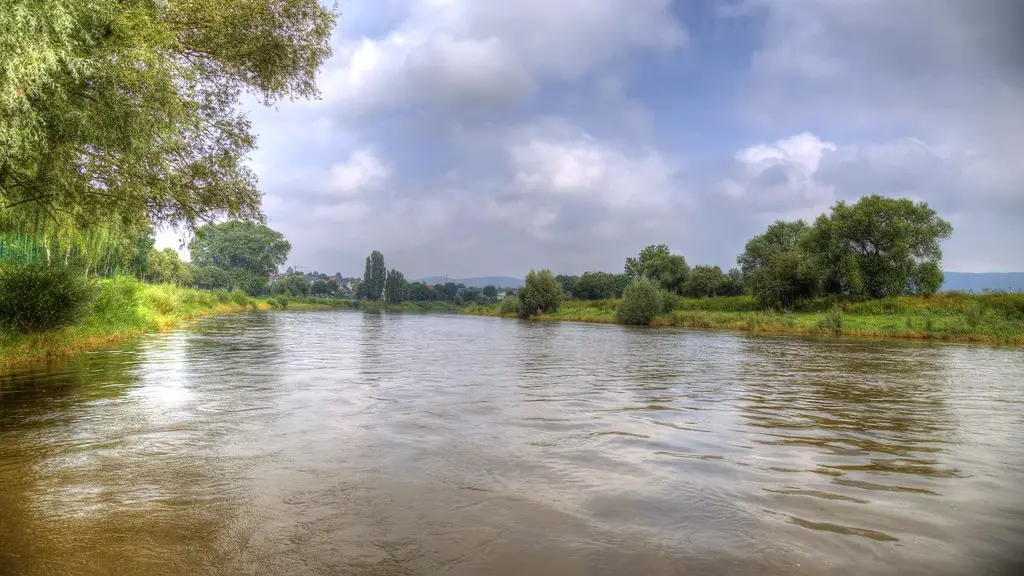The Mississippi River offers one of the most unique experiences in North America. Not only can you fish, boat, or wander along its banks, but it also provides drinking water to many people in the United States. But is it safe to drink Mississippi River water? Well, the answer is both yes and no.
The water of the Mississippi River is not always the same when it comes to drinking water quality. Depending on the location, it can contain varying levels of potential contaminants like metals, sediment, and other pollutants that may make it unsafe to consume. Additionally, cities near the Mississippi River use different treatment methods to make the water safe to drink. For example, stormwater run-off can contain high levels of bacteria and other contaminants, which can leech into the river, so the water needs to be treated before it is considered safe for drinking.
Experts agree that in most cases the water of the Mississippi River is potable if treated correctly. People who live in the areas close to the Mississippi River usually drink their tap water, although the tap water should not be assessed as safe to drink without a thorough analysis. This means that municipal water services should be checked regularly to ensure that they are in compliance with the Environmental Protection Agency’s guidelines.
Unfortunately, not all areas use the same standards when it comes to treating the water. For example, some areas may not adequately filter out suspended sediment, while others may not use the right type of chemicals to prevent bacteria and viruses from entering the water supply. This means that the quality of the water in the Mississippi River varies depending on the location.
Because of this, it is important to be aware of the potential health risks that come with drinking Mississippi River water. Unfiltered water can contain heavy metals, sediment, and other contaminants that can make it hazardous to drink. Additionally, some of the chemicals that are used to treat the water can also be harmful to consume, such as chlorine. For this reason, it is best to avoid drinking the water from the river, and instead opt for bottled water or water from a safe, tested source.
Health Issues
Drinking contaminated river water can lead to health issues ranging from minor illnesses to major ones, such as hepatitis and cholera. The Centers for Disease Control and Prevention recommends that people avoid drinking untreated surface water and opt instead for a tested, safe water source. Additionally, they advise that people in areas where there is an increased risk of drinking contaminated water should use a water filter to remove any potential dangerous chemical, bacterial, or microbial contaminants.
People living close to the Mississippi River should be mindful of their water source and only drink bottled water or water that is treated by a professional. It is also important to regularly check the water supply of their local municipality and ensure that it meets the standards of the Environmental Protection Agency.
Finally, it is essential to pay attention to the warning labels of any water sources that may come from the Mississippi River. Not all water from the river is safe to drink, and unsafe sources should be handled with caution.
Environmental Impact
While drinking unsafe Mississippi river water might be hazardous for human health, its effect on the environment is just as important. As the largest river in North America, the Mississippi River has an enormous impact on the environment. Pollutants from surrounding industries, farms, and cities are often dumped into the river, making it difficult to clean. Additionally, untreated sewage can enter the river, creating an unpleasant odor and putting wildlife and aquatic plants in danger.
The impact of the Mississippi River on its surrounding environment is also a result of inefficient sewage treatment. In some cities, sewage is not adequately filtered before being released into the river, leading to an increase of organic and inorganic pollutants. This further complicates the water cycle and lead to a decrease in the quality of life in the local area.
In light of this, it is essential that citizens living close to the river take measures to reduce the amount of pollutants entering the water. This can include being mindful of the waste that is entering the river, as well as working with legislatures to pass legislation that regulates water pollution.
Economic Impact
Aside from the environmental consequences of putting pollutants into the Mississippi River, there are also economic impacts. Tourists are likely to avoid a water source that they are not sure is safe to drink, thus negatively impacting businesses that rely on tourism around the river. Furthermore, more pollutants entering the river mean a decrease in the number of aquatic species, which can further damage the local economy in the form of lost fishing and hunting revenue.
In addition to the direct economic impacts, the Mississippi River also contributes to employment and income for millions of people in the region. The river is an important transportation route for goods and people, providing jobs to many. It is also a source of drinking water for many people, and its natural beauty draws in millions of tourists every year. Its economic importance cannot be overstated.
Therefore, in addition to its environmental and health benefits, it is important to take into account the economic impacts that come with ensuring the safety and cleanliness of the Mississippi River.
Implications
Ultimately, it is crucial that people living near the Mississippi River understand the implications of drinking its water. It is often not safe to drink untreated water directly from the river, and in most cases should be filtered before it is considered safe to drink. Additionally, it is important to be mindful of the pollutants entering the river, as these can have negative health, environmental, and economic implications.
Therefore, it is essential that citizens living near the Mississippi River are vigilant in ensuring that the water is safe to drink and understand the impacts of pollution on the water. With this knowledge and the help of the local legislature, citizens of the region can work together to keep their water source clean and safe for generations to come.
Health Regulation
In order to ensure that the Mississippi River remains safe to drink, municipalities need to adopt and enforce health regulations. This includes regularly monitoring the water for contaminants and treating it in accordance with the Environmental Protection Agency’s guidelines. Additionally, businesses, such as those in the fishing, tourism, and transportation industries, need to be aware of the potential health risks of drinking the river water and must take measures to ensure they are not putting the public in danger.
Furthermore, it is important that citizens living in the area of the river are educated on the risks of drinking contaminated water and know what steps to take to ensure that their drinking water is safe. This includes being aware of the warning labels associated with water sources coming from the river and avoiding drinking water directly from the river.
In conclusion, while the Mississippi River offers opportunities for relaxation and fun, it is essential to take the necessary safety precautions to avoid drinking unsafe Mississippi river water. With the help of proper health regulations and community education, people can enjoy the benefits of the river without risking their health.




